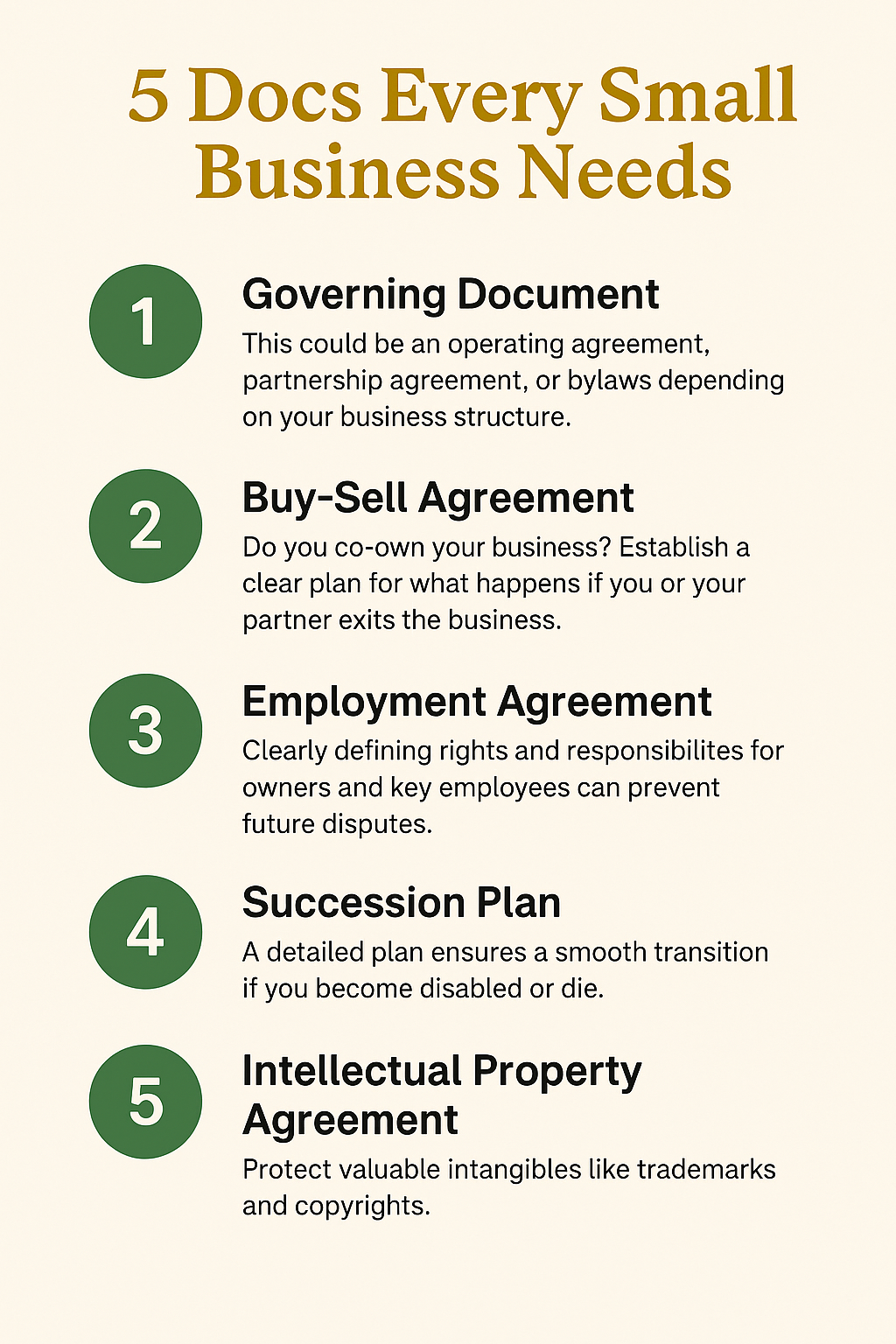Governance, Gosh Darn It! Why Small Business Owners Can’t Afford to Ignore Corporate Formalities
Governance, Gosh Darn It! Why Small Business Owners Can’t Afford to Ignore Corporate Formalities
Good governance isn’t just for Fortune 500s. Learn how small businesses in Pennsylvania and West Virginia can protect themselves from lawsuits, tax issues, and chaos with smart corporate governance.
The “G‑Word” Most Business Owners Avoid
When many small business owners hear governance, they picture dusty binders and endless meetings. Here’s the truth: governance isn’t bureaucracy—it’s protection. It’s the difference between a smooth‑running company and a legal headache.
What “Governance” Actually Means (in Real English)
Corporate governance is the way your business makes decisions, keeps records, and follows the rules.
- Keep accurate minutes and financial records
- Follow your operating agreement or bylaws
- Maintain separation between personal and business finances
- Document key decisions (especially for LLCs and corporations)
Why Governance Matters—Even for Tiny Teams
- Liability protection. Limited liability only works when you follow formalities.
- Investor & lender confidence. Clean books and documentation are non‑negotiable for funding or a future sale.
- Smoother transitions. Ownership changes, mergers, or dissolutions are easier with clear rules.
- Compliance with state law. Pennsylvania and West Virginia require basic governance steps for LLCs and corporations (see Title 15 in PA).
Common Governance Mistakes
- Skipping annual meetings or not documenting them
- Mixing personal and business money
- Ignoring the operating agreement (or never creating one)
- Handshake deals between co‑owners with no paperwork
- Failing to record major financial or structural decisions
How to Clean Up Your Governance—Without Drowning in Paperwork
- Review your formation documents. Make sure your operating agreement or bylaws reflect how the business really runs.
- Document key decisions. Keep minutes, resolutions, and contracts in one secure place.
- Keep money separate. Use distinct business bank accounts and avoid personal transfers.
- Schedule an annual “governance audit.” Meet with your attorney to review formalities and risk exposure.
Everyday Legal Advice: Make Governance Simple
We help business owners across Pennsylvania and West Virginia build practical governance habits. Whether you’re forming an LLC, cleaning up records, or preparing for growth, we help you protect your hard work before problems arise.
Small Business Governance FAQs
Do LLCs in Pennsylvania need annual meetings?
While formal annual meetings aren’t always required for LLCs, documenting major decisions and member approvals is essential to preserve liability protection.
How can a lawyer help with corporate governance?
We create or update governing documents, set up minute & resolution templates, perform annual audits, and prepare you for financing or due diligence.
*Disclaimer: The advice provided is for informational purposes and is not intended as legal advice. It should not be relied on, nor construed as creating an attorney-client relationship.

